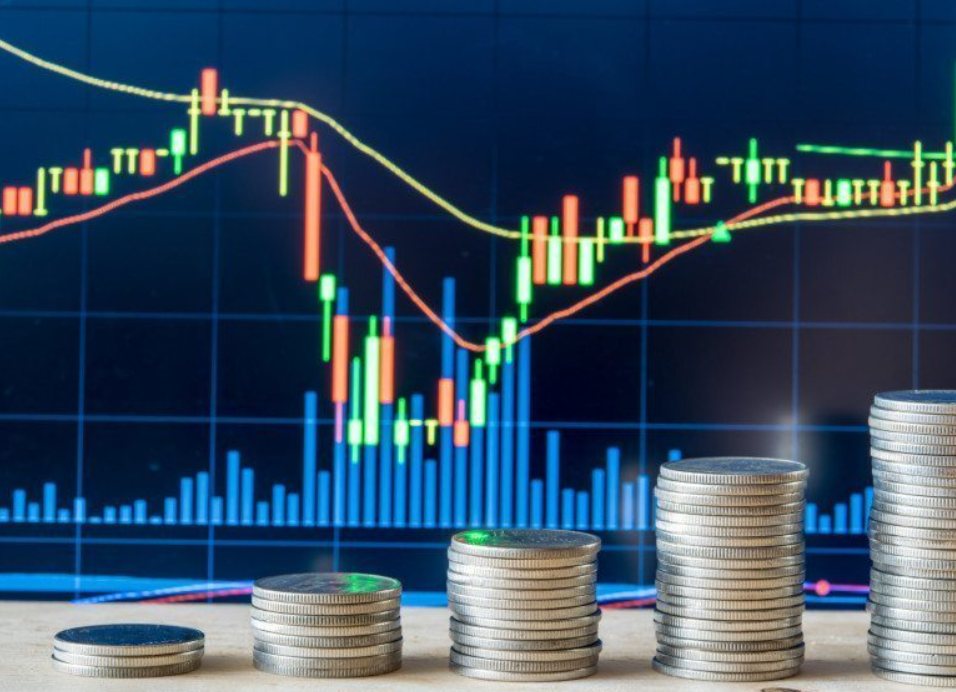A Hidden Work of Grace
It’s the typical come-to-Jesus moment. A church service concludes with an altar call, inviting those who don’t yet know Jesus to receive salvation through prayer. As they approach the stage, someone prays with them, and they hold their head in their hands, asking to join the ranks of the body of Christ.
After that, the lights come up, and the congregation is dismissed. From that moment on, those who came forward begin a wobbly, uncertain journey of faith. They wrestle with doubt and confusion, still learning that following Jesus doesn’t erase suffering but gives it meaning. Looking back, unable to recognize growth, they wonder: Did anything really happen? There was no beam of light from heaven or angel descending to mark the moment.
Yet, despite the uncertainty, something profound had indeed taken place. It was invisible, and it was divine. God had breathed new life. Scripture calls it being born again.
A New Life
When someone accepts Jesus as their Savior, recognizing the sin in their life, a new life in Christ begins. The transformation starts within and slowly works its way outward. Early on, good fruit mingles with residue from the old self as an inner battle unfolds. Over time, the Spirit takes the lead, healing the soul and cultivating understanding and grace.
Only the Holy Spirit truly witnesses this transformation. Yet church leaders often lean too heavily on doctrine to discern it, mistaking intellectual confidence for spiritual insight. Revelation, treated as inferior to knowledge, becomes a casualty of pride.
But life has a way of proving what doctrine alone cannot. Given time, the fruit of a believer’s life becomes unmistakable, confirming the promise of Scripture:
“Therefore, if anyone is in Christ, he is a new creation. The old has passed away; behold, the new has come.” – 2 Corinthians 5:17
Matters of the unseen demand humility. Knowledge without love breeds pride. Jesus’ ministry modeled something far deeper – love, grace, and mercy lived out in relationship. The early Church grew not through theological systems, but through transformed hearts that reflected His relational way of life.
Who We Are Now vs Who We Were
This rebirth happens everywhere the Gospel is preached – yet in the modern church, especially in America, the mystery of salvation is often dissected rather than revered. When mystery resists measurement, we hide it behind tidy phrases, the meaning of which erodes over time.
A prime example is the familiar confession: “I am a sinner saved by grace.” It sounds humble, even noble – but it subtly misrepresents who we are in Christ.
To understand why, we must ask: “If we are new creations, should we still call ourselves sinners? Hardly. The phrase “I am a sinner” sounds harmless, but the spiritual weight behind those words is immense. When God revealed His name to Moses as “I AM” at the burning bush in the Book of Exodus, he defined himself as the source of all being. When we say “I am,” we are declaring something about our essence. To attach “sinner” to that declaration after salvation is to mix the divine with the profane – a distortion of our new identity.
Before Christ, we were sinners – lost, fumbling toward the one in whom is all love, grace, and mercy, the traffic cop for all the broken world – the street name, Gospel Lane. Corny? After redemption, that identity dies. The redeemed are no longer sinners but children of God – saints, in whom Christ’s righteousness dwells.
“For our sake he made him to be sin who knew no sin, so that in him we might become the righteousness of God.” – 2 Corinthians 5:21
We are not merely sinners saved by grace; we are saints being transformed by the righteousness of Jesus.
Sinners are defined by their sin, dead in it. Saints wrestle with it – but from a place of power in Christ, not death. Saints seek purity of heart, moral clarity, and love empowered by the Spirit. When we mislabel ourselves as sinners, we obscure our light. The world, desperate for the glow of true sainthood, instead sees a dim reflection of the Kingdom. Pride in doctrine has replaced the humility of love, leaving many believers outwardly polished but inwardly dull.
Growing into Christlikeness
Becoming like Jesus is not a swapping of beliefs – it’s a deep, inside-out transformation. Conversion changes opinion; sanctification changes nature. It’s a process of discovery, unlocking the divine image God placed within humanity before sin entered the world.
The Holy Spirit – not human intellect – directs this journey. Through prayer and surrender, we are strengthened against temptation. Each new depth of abiding in God exposes more of the flesh to die and more of the Spirit to thrive. The process is painful, even infuriating at times, but profoundly real.
Jesus, fully divine and yet fully human, meets us in our humanity and transforms us from within. Our task is not self-improvement but surrender – to love what we once despised and despise what we once loved. The longer we walk in this tension, the clearer it becomes: holiness is not human achievement but divine craftsmanship.
“We know that our old self was crucified with him so that the body of sin might be brought to nothing.” – Romans 6:6
Where We’re at as a Body of Believers
Despite these truths, modern Christianity mirrors the world’s obsession with self-improvement. Many practice Christianity as a lifestyle brand rather than a living relationship. They chase holiness through productivity – church attendance, reading plans, volunteering – mistaking serving for transformation.
This moral busywork is little more than spiritual self-help. It may look righteous, but it lacks depth. It’s a Band-Aid for the fear of truly dying to self. Hyper-spiritualized media (CBN) and sentimental storytelling (Overcomer, War Room, Courageous) reflect this superficiality – replacing encounter with entertainment.
But God’s kingdom is no shallow concept. It’s the living reality of heaven breaking into earth. The problem isn’t that his kingdom is upside-down – it’s that ours is upside-down. God’s kingdom is right-side up. His spirit restores what sin fractured, quiets chaos, and turns restless hearts into still waters. From those still waters, sainthood begins to emerge – radiant, grounded, and alive.
Through Christ, we regain access to the Tree of Life – the source of all renewal lost in Eden. Every day, the world tempts us to eat again of the Tree of Knowledge, to trade intimacy for information. The fruit looks sweet, but its aftertaste is bitter. Spiritual maturity means learning to discern the fruit we consume – wisdom that nourishes verses knowledge that kills.
Jesus is the Tree of Life. In him, we feed on grace, not pride. We become less doctrinal and more alive – driven by the life of God flowing through us.
Writes Paul:
“Put off your old self… and put on the new self, created after the likeness of God in true righteousness and holiness.” – Ephesians 4:22-24
Transformation isn’t about earning God’s love but learning to receive it. It’s a lifelong unlearning of self-effort and a rediscovery of rest. As Star Wars once illustrated with the character Yoda through a secular lens: true power comes through “unlearning” what we have learned, or letting go, not striving, which was why Luke failed to lift that X-Wing out of the swamp. Even pop culture occasionally captures the truth.
Ultimately, the only obstacle to becoming like Christ is our resistance to his work within.
Reminds John:
“If we say we have no sin, we deceive ourselves.” – John 1:8
Living Out Our True Identity
Embracing our new identity in Christ requires daily surrender – a shedding of the old self like autumn leaves before winter. It’s kind of funny how our spirituality often parallels the rhythms of nature. God puts physical representations of spiritual rhythms all around us. The process doesn’t feel beautiful, but Jesus, the master craftsman, sees the beauty and delights in the transformation.
From the death of the flesh springs new life – a life lived in the power of the Holy Spirit and the love of the Father.
“But to all who did receive him, who believed in his name, he gave the right to become children of God.” – John 1:12
So, with confidence, we can say:
“I was a sinner, but now, I am redeemed. I am righteous in Christ.”
This truth not only magnifies the power of Christ’s sacrifice but also motivates us to live more bravely, more courageously, with the aim in mind to leave this world in better shape than it was when we arrived, because the Church is returning to paradise with each passing decade. We must prepare; we must soldier on. And the only way to press on in the strength of the Lord that never fails to rejuvenate us is to shift our lives from guilt to grace, from striving to surrender, from condemnation to confidence.
To bring it all together, we are not sinners – we are so much more. No new believer should think their path towards Christ is paved by church attendance, reading the Bible, and serving, and no seasoned believer should think of their years in the faith as a badge of honor. Truly mature saints walk the earth as a living dare to the darkness, knowing that no weapon can prevail against the one who walks in divine authority.


